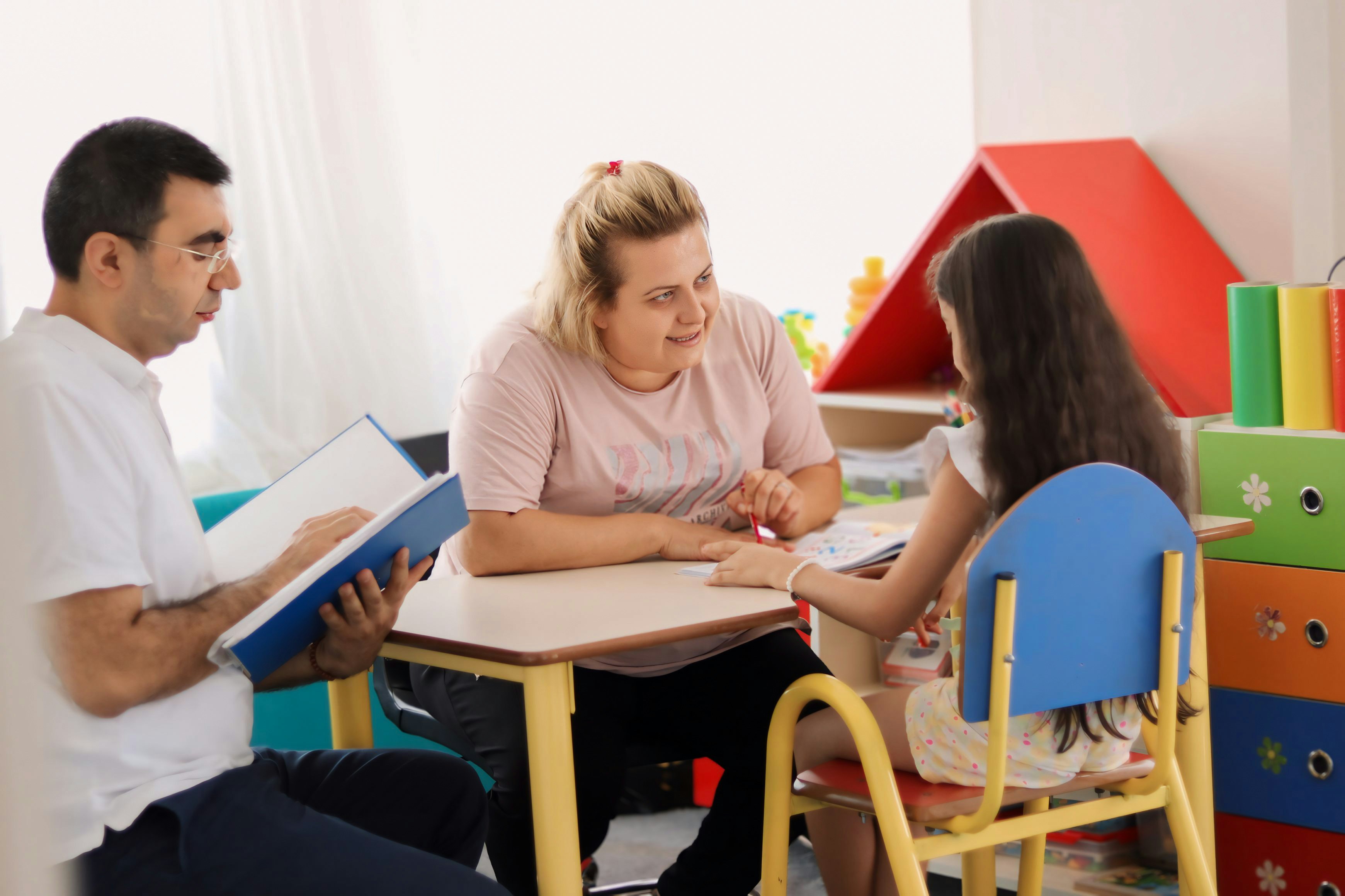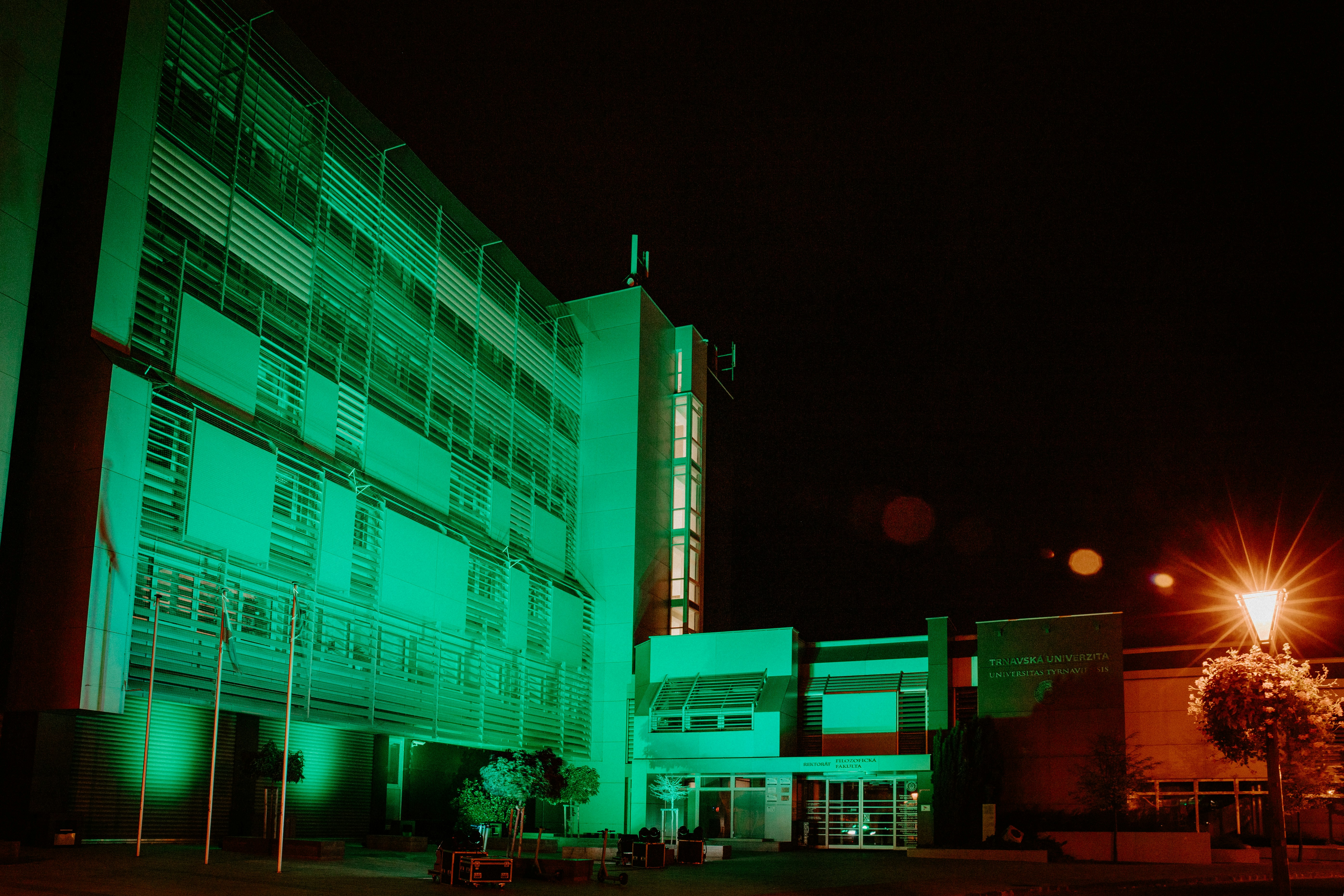Autism Testing Centers In Pennsylvania: Where To Get Tested

Getting tested for autism can be a life-changing step — whether you're a parent seeking answers for your child, a teen navigating challenges at school, or an adult finally beginning to understand lifelong patterns.
Autism testing isn’t about putting a label on someone — it’s about gaining insight. With the right diagnosis, doors open to support, therapies, and resources that can lead to greater communication, independence, and peace of mind.
Who Should Consider Getting Evaluated?
Autism can look different for every person. Some people might struggle with social cues, sensory sensitivities, or repetitive routines. Others may have trouble expressing emotions or adapting to new situations.
Whether you're a toddler just starting school, a high school student feeling overwhelmed, or an adult wondering why things have always felt a bit harder — getting evaluated is a powerful and empowering first step.
In Pennsylvania, there are many trusted places to seek autism testing — from renowned children's hospitals in Philadelphia and Pittsburgh to adult-friendly clinics and affordable university-based programs across the state.
This guide will walk you through your options based on age, services, and location — so you can take the next step with clarity, confidence, and the support you deserve.
Types of Autism Testing Services in Pennsylvania
Not all autism testing looks the same — and that’s a good thing. The process can vary depending on your age, symptoms, and whether you’re looking for a quick screening or a full diagnostic evaluation. Here’s a simple breakdown of the types of autism testing services available in Pennsylvania:
Diagnostic Evaluations for Children
Early diagnosis can make a big difference in a child’s development. In Pennsylvania, many clinics and children’s hospitals offer thorough evaluations led by teams that may include developmental pediatricians, child psychologists, and speech-language therapists. These professionals work together to observe your child’s behavior and compare it to typical developmental milestones.
What it includes:
- Interviews with parents or caregivers
- Play-based assessments
- Speech and language evaluations
- Observation of social interactions and communication
These evaluations can help families understand whether a child is on the autism spectrum and what types of early interventions may be most beneficial.
Autism Testing for Teens and Adults
Sometimes autism isn’t identified until later in life — especially for teens and adults who have learned to mask their symptoms or were previously misdiagnosed. In Pennsylvania, there are specialized clinics and psychologists who focus on evaluating older individuals.
What it includes:
- Personal interviews
- Questionnaires about routines, relationships, and behaviors
- Input from family members or teachers
- Cognitive or psychological assessments (when needed)
This type of evaluation looks at how autism may be affecting daily life, school, work, or relationships — even if signs weren’t obvious during childhood.
Developmental Screenings vs. Comprehensive Assessments
Not sure where to start? Many providers across Pennsylvania offer developmental screenings — short, focused sessions that help spot early signs of autism. These are often used for toddlers and young children, especially when there’s a concern but not a clear diagnosis yet.
If the screening suggests further evaluation is needed, a comprehensive assessment is the next step. This deeper process involves a series of tests and observations, often leading to a formal diagnosis and personalized recommendations for support.
Quick tip:
- Screening = quick check
- Full assessment = detailed evaluation
Who Performs Autism Testing in Pennsylvania?
Autism evaluations can be performed by a variety of qualified professionals, depending on your needs and location. These may include:
- Developmental pediatricians
- Licensed clinical psychologists
- Neuropsychologists
- Autism centers with multidisciplinary teams
No matter who conducts the evaluation, the goal is the same: to understand how a person thinks, communicates, and interacts — and to connect them with the right support.
Top Places to Get Tested for Autism in Pennsylvania
Whether you're seeking a diagnosis for your child, teen, or yourself as an adult, Pennsylvania offers many reputable clinics, hospitals, and programs focused on autism testing. Below, we've grouped some leading options by age group and service type.
For Children and Teens
- Children’s Hospital of Philadelphia (CHOP) – Autism Assessment Program (Philadelphia)
What They Offer: In-depth diagnostic evaluations for young children and teens using tools like the ADOS-2 and ADI-R, paired with multidisciplinary input.
Why Families Choose It: A combination of research-based protocols and extensive post-diagnosis resources, including therapies and family support. - All Children’s Therapy / The ARC of Pennsylvania (Statewide Centers)
What They Offer: Screenings, comprehensive diagnostics, and referrals to ABA, speech, and occupational therapies.
Why Parents Like It: Broad geographic reach and strong ties to school systems, making transitions smoother. - UPMC Western Psychiatric Hospital – Autism Evaluation (Pittsburgh)
What They Offer: Child and adolescent autism evaluations by child psychiatrists and developmental pediatricians.
Why It Stands Out: Offers rich clinical experience and collaborative connections to both medical and educational services.
For Adults
- Temple University Neurocognition and Imaging Center (Philadelphia)
What They Offer: Adult-focused autism assessments including cognitive testing and questionnaires.
Why Adults Choose It: Clear pathway toward understanding one's neurodiversity, backed by university-led expertise. - UPenn Adult Autism Clinic (Philadelphia/Virtual)
What They Offer: Virtual or in-person assessments for adults, focusing on self-reported life patterns and social functioning.
Why It’s Valuable: Convenient access combined with thorough diagnostics. - Autism Spectrum Screening & Evaluation (ASSE) Center at Pittsburgh State (Pittsburgh)
What They Offer: Comprehensive adult evaluations using behavioral measures and feedback sessions.
Why Adults Like It: Thoughtful and affirming process aimed at real-world understanding.
Multidisciplinary Autism Evaluation Centers
- Pennsylvania Diagnosis & Assessment Centers (various locales)
What They Offer: Full-spectrum evaluations delivered by psychologist-led teams—covering children, teens, and adults.
Why It's Helpful: Centralized services that eliminate the need for navigating multiple providers. - Private Pediatric Developmental Practices
What They Offer: Personalized autism diagnostic services, follow-up planning, and therapy referrals.
Why Families Trust It: Known for individualized attention, flexible scheduling, and strong feedback.
Support Available After Diagnosis
The above providers typically go beyond testing—for example, offering:
- ABA, speech, and occupational therapy referrals
- School advocacy, assistance with IEPs or 504 plans
- Adult transition supports such as vocational coaching
- Counseling or peer support group recommendations
What to Look for in an Autism Testing Provider in Pennsylvania
- Specialization in your age group (child, teen, adult)
- Use of validated tools like ADOS-2 and developmental interviews
- Licensed professionals (psychologists, developmental pediatricians, neuropsychologists)
- Clear, transparent process before, during, and after the assessment
- Post-test support services (therapy referrals, school planning)
- Insurance acceptance or flexible private-pay options
- For adult evaluations, sensitivity to neurodiverse and inclusive approaches
City-by-City Guide to Autism Testing Locations in Pennsylvania
City / Region | Clinic / Center | Who They Test | Services Offered | Insurance / Payment |
Pittsburgh | UPMC Western Psychiatric Hospital – Center for Autism & Intellectual Disabilities | All ages (children to adults) | Diagnostics, therapy, inpatient/day programs, adult outpatient clinic (UPMC | Life Changing Medicine) | Insurance accepted; no referral needed (UPMC | Life Changing Medicine) |
UPMC Children’s Hospital – Behavioral Science Division | Children (18 months to 7 yrs) | Comprehensive ASD evaluations using ADOS-2, treatment planning (UPMC Children's Hospital of Pittsburgh) | Insurance accepted | |
Children’s Institute of Pittsburgh | Children | Outpatient ABA, speech, OT, neuropsychology assessments (Wikipedia) | Varies by service and location | |
Philadelphia | Children’s Hospital of Philadelphia (CHOP) – Autism Assessment Program | Children, Teens | In-person multidisciplinary diagnostics and referrals | Most major insurance accepted |
UPenn Penn Autism Clinic | Children, Adults | Personalized evaluations, coordination of care | UPenn Health System insurance/self-pay | |
Erie / NW PA | Barber National Institute | Children, Adults | Diagnosis, school programs, adult services, vocational support | Medicaid & private insurance accepted |
Central PA | UPMC Central PA – Autism Assessment & Support | All ages | ADOS-2 testing, diagnostic reporting, ongoing psychologist care (UPMC | Life Changing Medicine) | Insurance accepted |
State College | Penn State CARE Clinic | Children, Teens | Diagnostic assessments integrated with research | Insurance/self-pay options |
Harrisburg Area | Hershey Medical Center – Child Development Center | Children | Autism screening, developmental pediatrics | Insurance accepted |
Allentown / Lehigh Valley | WellSpan CADD | All ages up to 26 | Autism diagnosis, therapy referrals, psychiatric care | No referral needed |
Statewide Telehealth | UPMC CADD / University Programs | Teens, Adults | Virtual assessments available statewide | Insurance & self-pay options |
Low-Cost and Free Autism Testing Resources in Pennsylvania
Getting tested for autism can be expensive, especially without insurance. But in Pennsylvania, there are several options that offer low-cost or even free evaluations — particularly for children or families with limited income.
State-Funded Clinics and Programs
The Pennsylvania Office of Child Development and Early Learning (OCDEL) and the state’s Early Intervention programs help families with young children (birth to age 5) get evaluated and access support. These services are often free if your child qualifies.
- Birth to Age 3: Services are coordinated through county Early Intervention programs.
- Ages 3–5: Testing and services are provided through Intermediate Units (IUs) across the state.
Find your local program: pa.gov Early Intervention Services
University-Based Autism Clinics
Several Pennsylvania universities offer autism testing through their psychology or education departments. These clinics are usually supervised by licensed professionals and may provide reduced-fee evaluations, especially for research-based assessments.
- University of Pittsburgh – Center for Excellence in Autism: Offers evaluations and follow-up care.
- Penn State Psychological Clinic: Low-cost assessments for children, teens, and adults.
- Temple University – Psychological Services Center: Sliding-scale fees for evaluations.
Nonprofits and Grants
Some nonprofits in Pennsylvania provide scholarships, grants, or referrals to low-cost autism testing services. They can also help families navigate insurance or connect with free resources.
- The Autism Society of Greater Pittsburgh: autismsocietypgh.org
- KenCrest Services (Philadelphia area): kencrest.org
- Easterseals Eastern PA: easterseals.com/esep
How to Choose the Right Evaluation Center
Not all testing centers are the same — and picking the right one can make a big difference in how helpful and accurate the results are.
Look for These Key Features:
- Qualified professionals — Licensed psychologists, developmental pediatricians, or behavioral specialists with autism experience.
- Age-appropriate services — Some centers focus on early childhood, others on teens or adults.
- Comprehensive evaluations — Beyond a quick screening, including observation, history, and standardized tools like ADOS-2.
Questions to Ask Before Booking:
- Do you evaluate [children / teens / adults]?
- How long is the wait time for an appointment?
- Do you accept insurance or offer payment plans?
- Will I receive a written report and recommendations?
A center that answers your questions clearly, makes you feel heard, and treats you with respect is usually a sign you’re in the right place.
Do You Need a Referral for Autism Testing in Pennsylvania?
This depends on where you go and how you’re paying.
If You’re Using Insurance
Most private insurance plans — and Pennsylvania’s Medicaid program (Medical Assistance) — usually require a referral from your child’s pediatrician or your primary care doctor. The referral helps the insurance company approve and cover the cost of the evaluation.
If You’re Paying Out of Pocket
If you’re not using insurance, you typically don’t need a referral. You can contact a clinic, hospital, or licensed psychologist directly and request an autism evaluation appointment.
For Schools or Early Intervention
- Birth to Age 3: You can contact your county’s Early Intervention program directly for a free evaluation — no doctor’s referral needed.
- Ages 3–5: You can request testing through your local Intermediate Unit (IU), even if your child isn’t in preschool or daycare.
- School-Age Children: Public schools are required to evaluate students suspected of having a disability at no cost, even if the student is homeschooled or in private school.
Autism Testing for Adults: What’s Different?
Autism isn’t just diagnosed in childhood — many adults go undiagnosed for years because they learned to “mask” their traits or were misunderstood when they were younger. More adults are now seeking evaluations after noticing signs in themselves.
What Makes Adult Testing Unique?
- Signs Can Be Subtle: In adults, autism might appear as social burnout, anxiety, difficulty with change, or deep focus on routines and interests. These signs are sometimes mistaken for anxiety, ADHD, or just “being quirky.”
- Life Stage Matters: Evaluations consider how you function at work, in relationships, and in day-to-day responsibilities — not just in school or childhood settings.
- Specialized Providers Are Key: Not every clinic offers adult testing. Choose one with experience in diagnosing autism in adults and a licensed psychologist who understands adult presentations.
Why Adults Get Tested
- To better understand themselves
- To access workplace or college accommodations
- To connect with autism support groups or services
- To finally get answers to lifelong questions
How Long Does Autism Testing Take in Pennsylvania?
Autism testing isn’t a one-time visit — it’s a step-by-step process designed to fully understand a person’s strengths, challenges, and needs.
Here’s What You Can Expect
- Initial Call or Intake
You’ll fill out forms and may have a short phone interview with the clinic or provider. - Wait Time
In Pennsylvania, the wait can range from a few weeks to several months, especially at popular hospitals, children’s centers, or specialists in cities like Philadelphia, Pittsburgh, Allentown, Erie, Reading, Harrisburg, and Scranton. - Testing Day(s)
You (or your child) will meet with a psychologist or specialist for several hours. This may include:
- Answering questions
- Doing tasks or puzzles
- Talking about daily life and behavior
- Parent or Caregiver Input
For children — and sometimes even for adults — interviews with family members can help provide a complete picture. - Final Report
After the evaluation, you’ll receive a detailed report with results and a diagnosis (if applicable). This usually arrives 2 to 6 weeks after testing.
What Happens After the Diagnosis?
A diagnosis isn’t the end — it’s the start of getting the right support, understanding, and resources.
If a Diagnosis Is Given:
- You’ll get a written report with the full evaluation, diagnosis, and recommendations.
- You can begin therapies or services, such as:
- ABA (Applied Behavior Analysis) for children
- Speech or occupational therapy
- Social skills groups or life coaching for teens and adults
- School or workplace accommodations
- ABA (Applied Behavior Analysis) for children
Other Benefits:
- Access to IEP or 504 Plans in schools
- Possible government assistance (if eligible), such as job training, Social Security, or Pennsylvania’s Office of Developmental Programs services
- More confidence and relief from finally understanding what’s been going on
Tip: Even if autism isn’t diagnosed, testing can reveal other helpful information — like ADHD, anxiety, or learning differences — so you can still get the right support.



